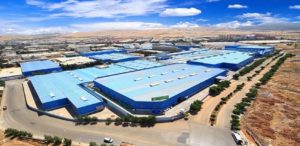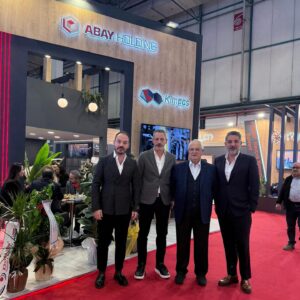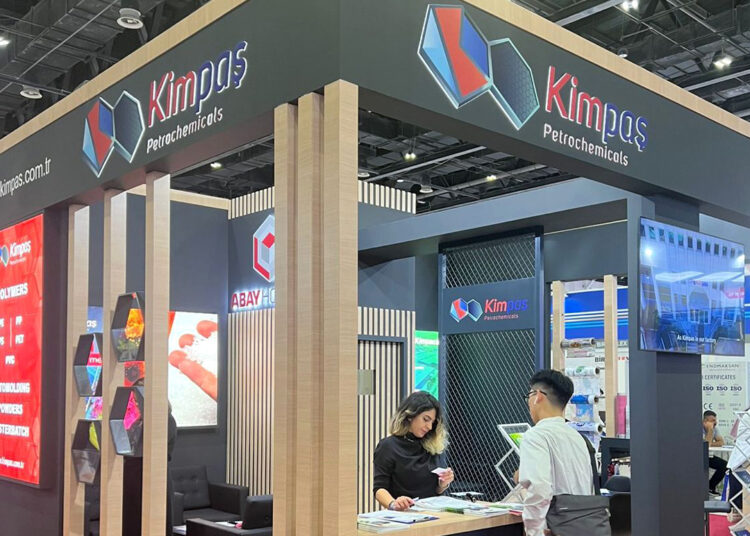Abdullah Bozkurt / Stockholm
The United States has imposed sanctions on a Turkish chemical company linked to a pro-government business group, sending a strong message to the administration of President Recep Tayyip Erdogan over its role in helping Iran evade international restrictions.
On April 30, 2025, the US State Department announced that the Istanbul-based Kimpaş Kimyevi Maddeler Pazarlama Ticaret ve Sanayi A.Ş. (KİMPAŞ) had imported over $15 million worth of Iranian-origin petrochemical products in violation of US sanctions on Iran. The company reportedly sourced the materials from several US-designated Iranian entities, including Jam Petrochemical Company, Tabriz Petrochemical Company and Persian Gulf Petrochemical Industry Commercial Co.
According to the State Department, these transactions violated sanctions aimed at cutting off the Iranian regime’s financial lifelines, which fund its nuclear program, terrorism and regional militant activities. As a result KİMPAŞ’s assets and financial interests under US jurisdiction have been frozen, and US individuals and companies are barred from engaging with the company unless specifically authorized by the US Treasury’s Office of Foreign Assets Control (OFAC).
This action places KİMPAŞ among a growing list of Turkish companies accused of enabling Iran’s sanctions evasion schemes, in what appears to be a permissive environment fostered by President Erdogan, who allegedly profits personally from such illicit dealings while enriching his political allies.
Iran’s state-run companies frequently exploit Turkey’s corporate sector and financial infrastructure to conduct deceptive trade and money transactions, allowing continued export of Iranian petroleum despite international sanctions. This long-running circumvention strategy has drawn mounting scrutiny from the US, particularly as Erdogan’s allies in business appear to repeatedly be involved.

KİMPAŞ is owned by Abay Holding, a family-run conglomerate that has expanded rapidly in recent years with the support of Erdogan’s government. The head of the family, Lütfi Abay, is known for his loyalty to Erdogan and public support for the ruling Justice and Development Party (AKP) during election campaigns. Abay often appears in photos with senior Turkish officials and has benefited significantly from what critics describe as a wealth redistribution scheme orchestrated by Erdogan over the last decade.
Abay Holding’s expansion includes controversial acquisitions, notably the 2022 purchase of Naksan Plastik A.Ş., a major plastic packaging manufacturer. The Turkish government had previously seized Naksan Plastik as part of a sweeping crackdown on businesses deemed hostile to Erdogan’s administration. The Savings Deposit Insurance Fund (TMSF) handled the asset seizure and eventual sale.
Naksan Holding, the parent company, was once valued at $3.6 billion before it was forcibly taken over in July 2016 from its owners, the Nakıboğlu family, after they reportedly rejected a demand from Erdogan for a $250 million bribe. The seizure was executed by the controversial Penal Courts of Peace (Sulh Ceza Hakimliği), which have been widely criticized for their lack of judicial independence.
In December 2021 the TMSF launched a tender for Naksan Plastik’s sale. The winning bid came from ABY Plastik Ambalaj ve Enerji Sanayi Ticaret A.Ş., a newly formed company by Abay Holding with no prior experience in the plastics sector and a registered capital of just 1 million Turkish lira. The sale was finalized in April 2022.
The transfer of Naksan assets not only raised concerns about corruption and cronyism but also caused significant financial damage to international stakeholders. Naksan Plastik had served as collateral for €433 million in loans from the Czech Export Bank (Česká exportní banka, or CEB), insured by EGAP, the Czech state export credit agency. After the Turkish government seized the company, the loan was defaulted on and transferred to Doruk Madencilik Sanayi Ticaret A.Ş., a Turkish mining company, for just €70 million — a fraction of its original value.
This financial hit to Czech and Turkish taxpayers was reportedly facilitated by then-Turkish ambassador in Prague Egemen Bağış, who was implicated in a 2013 corruption probe related to Iranian sanctions-busting. The fraudulent arrangement has since been cited as a prime example of misgovernance and abuse of power in Erdogan’s Turkey.
Today, ABY Plastik operates under the Kimpack brand and remains a core part of Abay Holding’s portfolio, which includes businesses such as Kimpack Energy, BVA (construction and automotive), Nakpilsa (textiles) and Karboline (maritime). The holding remains under tight family control, with Lütfi Abay as honorary chairman and his sons Berkan, Volkan and Atakan Abay managing daily operations.

The US has long suspected Erdogan’s government of involvement in Iranian sanctions-busting. In 2013 massive corruption investigations revealed that Erdogan, along with ministers Muammer Aksoy (Interior), Egemen Bağış (EU Affairs) and Zafer Çağlayan (Economy), worked closely with Reza Zarrab, an Iranian-Turkish national, to launder Iranian money through Turkish banks.
The case was derailed after Erdogan intervened to halt the investigation, dismissed prosecutors, judges, and police chiefs and portrayed the probe as a “judicial coup attempt.” Zarrab, initially released in Turkey, resumed his operations under the apparent protection of the government.
In 2016 Zarrab was arrested by the FBI in Miami and later testified in US court against the former Turkish ministers, saying he had numerous officials on his payroll. His testimony also implicated Halkbank, a Turkish state-owned bank, and led to the conviction of Mehmet Hakan Atilla, its deputy general manager, in 2018. Atilla served his sentence in the US before returning to Turkey in July 2019.
That same year the US Justice Department indicted Halkbank, accusing it of bank fraud, conspiracy and violating the Iran sanctions regime under the International Emergency Economic Powers Act.
President Erdogan has tried multiple times to pressure three US administrations — those of Obama, Biden and Trump — to drop both the Zarrab and Halkbank cases, without success. He even resorted to detaining US nationals and consulate employees in Turkey to gain leverage in negotiations, but these efforts also failed.












